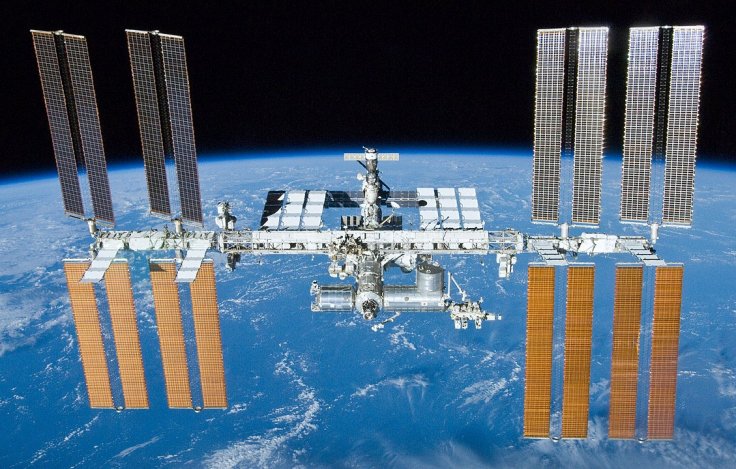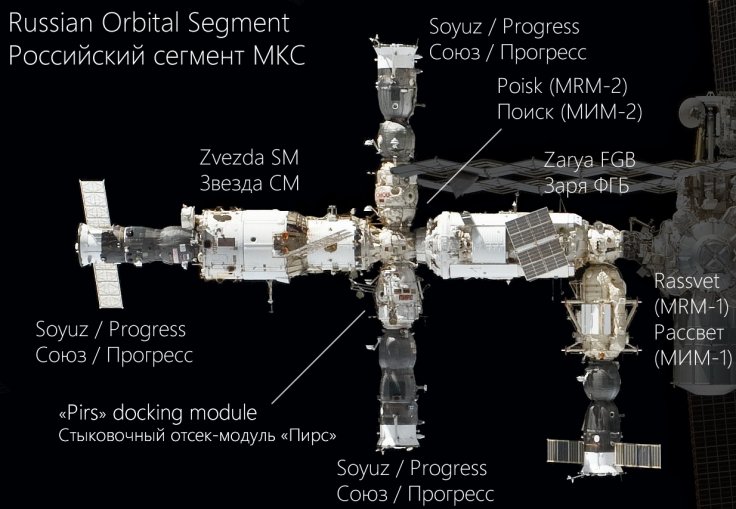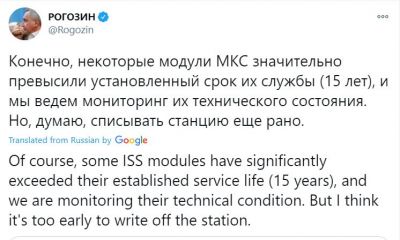The International Space Station (ISS) is nearing its end. The first space station that was a result of international collaboration had its first component launched in 1998. Since then, it has grown bigger and has served numerous experiments. But the ISS is nearing its end of service which is supposed to run through 2030.
However, Russia, which is a member of the ISS, believes that it may end its service sooner than previously thought. As Russia has pledged to continue its support of the ISS till 2025, it will rather start building its own space station after that.
Russia's spaceflight manufacturer RSC Energia said that many components of the ISS were on the verge of catastrophic failure and they were beyond repair. Vladimir Solovyov, first deputy designer general of Energia said that many components that were too costly to repair would only get worse from 2025. Since it would be too costly to repair, it would be better to build own space station.
"Until 2025, Russia has obligations to participate in the International Space Station program. There are already a number of elements that are seriously affected by damage and are going out of service. Many of them are not replaceable. After 2025, we predict an avalanche failure of numerous elements onboard the ISS," Solovyov, who is also the Flight Director of the Russian side of the ISS, told the Russian Academy of Sciences on November 25.

ISS Plagued by Problems
The ISS has already been up for over 22 years — a record in spaceflight. But with time, the equipment has shown signs of aging. In October, astronauts reported an air pressure leak in the ISS and the issue was traced to a crack in Russia's Zvezda module. It also has moved three times in 2020 to avoid space debris Ivan Vagner, a former cosmonaut said that it was due to wear and tear. Another former cosmonaut Gennady Padalka said that the components on the Russian module had a self-life of 15 years but it was stretched to 22 years.
"All modules of the Russian segment are exhausted," said Padalka, who is the world record holder in spending the most time in space (878 days). Hence, it may not be long before the ISS is decommissioned.
Solovyov said it was time for Russia to "to revise the terms of further participation in the program" and launch its own space station named Russian Orbital Service Station (ROSS). It is currently under development at Energia. According to him the cost to repair would be around 15 billion rubles or around $200,000 to repair the existing modules. But it has been deemed expensive.

Russian Space Station
However, if Russia is to walk out of the agreement and build its own space station, it wouldn't be the first time. Russia had its space station named Mir until 2001 when its orbit decayed. The comments from Solovyov also indicate that Russia may walk out from the ISS and instead focus on another space race against NASA as animosity between the two countries has grown over the last few years.
Once launched, ROSS would be able to host two to four people. With up to seven modules that can be replaced, the space station could have an unlimited lifetime. But Solovyov's comments were quickly refuted by the Roscosmos Press Service. The agency said Solovyov's remarks were informational in nature and did not contain "proposals to terminate participation in the ISS" and it contradicted reality.
Dmitry Rogozin, Roscosmos' Director-General, later tweeted saying that it was too early to write off the station but added that some modules might need replacement to keep it in the orbit for longer.





"I think it's too early to write off the station. I see the great potential of the ISS for the development of space tourism and the participation of private space companies," he said.
Other Planned Space Stations
Russia wouldn't be alone if it does have its own space station once again. China, which is not part of the ISS, has also plans for a larger space station that would be of the size of Mir. The core module of the space station named Tianhe is expected to be launched next year. Apart from China, India's space agency (ISRO) said it would not join the ISS and rather launch its own space station sometime after 2030. Indonesia also has ambitions to have its own space station after 2030.









